VisionIAS
07:21
Tuesday, December 24, 2019
Monday, December 23, 2019
Daily Current Affairs, 23rd December 2019
VisionIAS
21:18

1) India constructs Girls’ Hostel for Nepal Armed Police Force
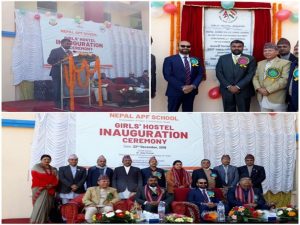
•The school was established in 2005 and it has over 21 per cent of girls students. The new infrastructure constructed with the Government of India’s grant assistance of 40.42 million Nepali Rupees is a two-storied girls’ hostel. It comprises 32 rooms including a dormitory, warden room, bathroom, sanitation facilities for girls on each floor and furniture.
2) Sikkim CM laid the foundation stone two IPUs of Sikkim IFFCO
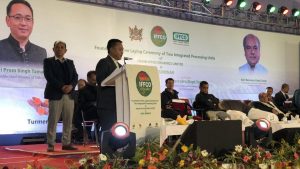
•Its aim is to promote and market the organic produce of the country and especially from Sikkim and other north-eastern states of India. The major commercial crops in which Sikkim IFFCO will operate are ginger, turmeric, large cardamom and buckwheat.
3) Emergency protocols activated in the Galapagos Islands after fuel spill
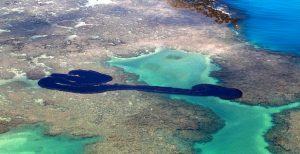
•The Galapagos archipelago is a UNESCO World Heritage Site and home to one of the most fragile ecosystems on the planet.
4) Integral Coach Factory produces 3000 Coaches in record 215 days

5) Monisha Ghosh named 1st woman CTO at FCC in US
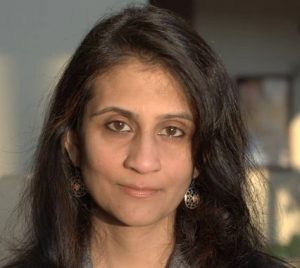
6) India-Iran 19th Joint Commission meeting held in Iran
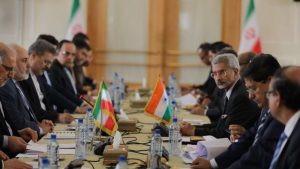
7) EChO Network was launched in New Delhi
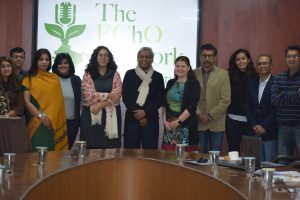
8) Indian Archaeologist honoured in Bangladesh
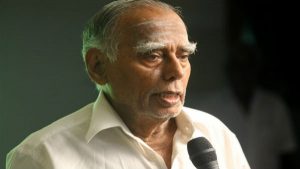
9) Malayali boy Aditya bags top bravery award
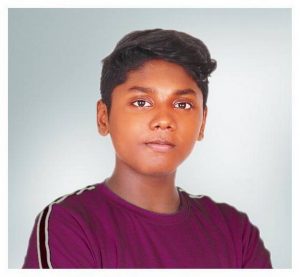
•Two more children from the State are also recipients of the awards. Muhammed Mohsin has been given the award posthumously for saving the lives of three children. Fatah gets the award for rescuing a woman and a girl from an approaching train. Both belong to Kozhikode.
10) Vice Prez released book ‘Turbulence and Triumph: The Modi Years’
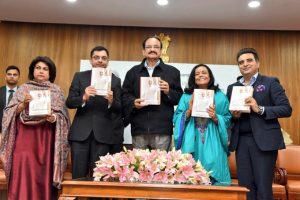
Daily Current Affairs, 22nd December 2019
VisionIAS
21:02

1) National Mathematics Day: 22 December
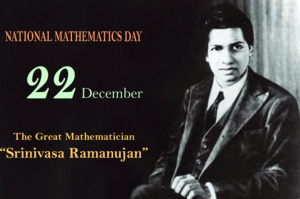
•Ramanujan had a wealth of ideas that have transformed and reshaped 20th-century mathematics. These ideas continue to shape mathematics of the 21st century. The main objective behind the celebration of National Mathematics Day is to make people aware of the development of mathematics and its importance in the growth of humanity.
2) Eight West African nations rename common currency to Eco

3) Cuba names Manuel Marrero Cruz to be first PM since 1976
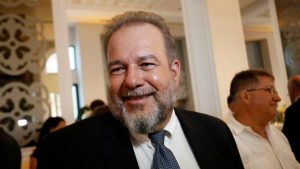
The HINDU Notes – 23rd December 2019
VisionIAS
19:47

📰 India, Iran agree to accelerate Chabahar port development
Indians in Tehran raise concerns over Citizenship Act
•Days after his visit to Washington, External Affairs Minister Subrahmanyam Jaishankar met with Iranian Foreign Minister Javad Zarif for a meeting of the 19th India-Iran joint commission, including talks on the Chabahar port, during a visit that could see him dealing with concerns of Indian expatriates over the Citizenship (Amendment) Act as well.
•In a tweet after the meeting on Sunday, Mr. Zarif said they had “excellent discussions on closer bilateral relations and regional and global issues affecting our respective countries,” adding that India-Iran ties are “ancient, historic and unbreakable”.
Productive meeting
•Mr. Jaishankar said the meeting with Mr. Zarif and the Iranian delegation had been “very productive”. “ [We] reviewed the entire gamut of our cooperation [and] agreed on accelerating our Chabahar project,” he said in a tweet.
•The meeting of the two ministers was the first since last month, when Mr. Zarif had told a group of visiting Indian journalists that he was “disappointed” that India had allowed itself to be “bullied” by the United States and stopped all oil imports from Iran. Speaking in Delhi, Iran’s Ambassador Ali Chegeni had earlier suggested that India’s adherence to U.S. sanctions was also affecting Chabahar port development plans.
•In Washington last week, however, a senior U.S. official made it clear that it would continue its “narrow exemption” to India to develop the Chabahar port, recognising its role as “as a lifeline to Afghanistan in terms for India to be able to export humanitarian supplies and potentially helping Afghanistan diversify its export opportunities.”
•Subsequently, diplomats from India, Iran and Afghanistan met in Delhi on Friday and discussed several new initiatives for the trilateral project at Chabahar.
Citizenship Act flagged
•Meanwhile, the Mehr news agency reported that a “number of Indian businesspersons, professionals, university and seminary students and scholars living in Iran” sought a meeting with Mr. Jaishankar to discuss protests in India.
•MEA officials did not respond to a query about whether the groups had been granted a meeting with Mr. Jaishankar, or if the CAA had come up during his talks with the Iranian leadership. Mr. Jaishankar is expected to meet with Iranian President Hassan Rouhani before he leaves Tehran on Monday and travel next to Oman for bilateral talks.
📰 ‘Counter-cyclical steps, structural reforms needed to tackle slowdown’
THE HINDU NEWSPAPER IMPORTANT ARTICLES 23.12.2019
Sunday, December 22, 2019
THE HINDU NEWSPAPER IMPORTANT ARTICLES 22.12.2019
VisionIAS
08:07

NATIONAL
SCI-TECH & AGRI
Earth’s innermost layer is capped by “iron-snow“: Study
Peregrine falcon has fastest vision speed: Study
Last stand of Homo erectus may have been on Indonesian island: Study
’How body becomes prone to rotavirus infection decoded’
Carbon dots help detect herbicide pollution
Last stand of Homo erectus may have been on Indonesian island: Study
’How body becomes prone to rotavirus infection decoded’
Carbon dots help detect herbicide pollution
BUSSINESS
No possibility of any change in GST slabs, ratesThe HINDU Notes – 21st December 2019
VisionIAS
07:44

📰 A premature denouncement of the Citizenship Act
Its critics must appreciate the need to bring closure to the consequence of religious theocracy in India’s neighbourhood
•Pinarayi Vijayan, senior leader of the Communist Party of India (Marxist) and the Chief Minister of Kerala has written in The Hindu (Editorial page, “Time to defend India’s secularism”, December 18, 2019) on why he opposes the recently enacted Citizenship (Amendment) Act [CAA], 2019. He gives three reasons for his opposition to the legislation.
•In order to take up and rebut these reasons, the aims and objects of this legislation passed by both Houses of Parliament by a large majority, and the historic context for the legislation need first to be made clear.
•The Citizenship (Amendment) Bill was introduced in 2019 after long deliberation by the Joint Select Committee of Members of Parliament. A Report of the Committee was adopted by a majority of Members of Parliament and placed on the table of both Houses in 2016. But Lok Sabha elections intervened and so the Bill had to be re-introduced in December 2019.
Ground realities
•The need for this Bill arose partly because the Islamic theocratic nations of Pakistan, Bangladesh, and Afghanistan have brutally persecuted non-Muslim minorities since 1947. This has led to a sharp fall in the proportion of the non-Muslim minorities in the total population of these countries.
•Those who survived forcible conversion escaped and illegally entered India. They were Hindus, Sikhs, Jains, Buddhists, Christians, and Parsis and they were categorised as illegal migrants. As of December 31, 2014, they numbered 31,313: Hindus (25,447), Sikhs (5807), Buddhists (2), Christians (55), and Parsis (2). Those belonging to two religions were not in this list: Muslims and Jews. A small number of Jews migrated to Israel. No Muslims or Jews came to India over the last 70 years on grounds of religious persecution.
Political concern
•Over the past 70 years, many leaders of different parties expressed concern over the appalling conditions of living of this category of illegal immigrants. Not having citizenship or passports or Aadhar cards, they could not avail themselves of any proper employment and so lived in conditions of poverty and squalor.
•The first authority to express concern over this state of affairs was the Working Committee of the united Congress Party. The Committee adopted a resolution on November 25, 1947 urging citizenship and “full protection to all those non-Muslims from Pakistan who have come over to India or may do so to save their life and honour”. An affirmation of this view came from Dr. Manmohan Singh, the then Leader of the Opposition in Rajya Sabha, on December 18, 2003 (a video clip is available in the Parliament Library). Dr. Singh said then: “After the Partition of our country, minorities in countries like Bangladesh have faced persecution, and it is our moral obligation that if circumstances force people — these unfortunate people — to seek refuge in our country, our approach for granting citizenship to these unfortunate persons should be more liberal.” The same view was expressed in writing in 2014 to Prime Minister Narendra Modi by the then Chief Minister of Assam, Tarun Gogoi.
•Chief Minister Vijayan thus seems not to have appreciated the historical context of the CAA and the need to bring to closure the sad consequence of religious theocracy in our neighbouring nations. Instead he advances three reasons to denounce the CAA: First, that it is ultra vires the Constitution of India, especially Articles 5 to 11 and also 14. Second, that it is divisive, and violative of human rights because it discriminates against Muslims. Third, that the Bharatiya Janata Party’s aim is to establish a Hindu nation and that aim underlies the CAA.
•The first reason is baseless. Articles 5 to 10 have nothing to do with the CAA. Article 11 in fact empowers Parliament to bring such an amendment as the CAA. As for the CAA violating Article 14, we need to look at the letter of Article 14 but also at judgments galore of the Supreme Court of India on the interpretation of this Article.
•A simple example to contradict Mr. Vijayan’s contention is of a Brahmin claiming reservation in education and schools on a par with Scheduled Castes because of Article 14 guaranteeing “equality before law”. The Supreme Court has repeatedly made it clear that equality before law is only for those equally placed. Here on religious persecution, the Muslims of Pakistan etc., are not similarly placed.
•Mr. Vijayan further adds that “Article 14 applies not only to citizens but all persons within the territory of India.” Do we know of a single example of a Muslim citizen of Afghanistan, Pakistan or Bangladesh who entered India due to religious persecution and can be identified as an illegal migrant by the official agencies to qualify for citizenship under the CAA? The Union Home Ministry, in the list prepared of this category of illegal migrants, did not discover a single such Muslim from these three countries.
•It should be made clear that there are five ways a foreigner can become a citizen of India under the Citizenship Act, 1955, namely, by birth, descent, registration, naturalisation, and incorporation of territory. The CAA, 2019 adds a country-specific exception to the naturalisation section. However, any Muslim can become an Indian citizen under the naturalisation section.
Hindutva and Constitution
•Mr. Vijayan makes a “final point”, that “the agenda of Hindutva and the ultimate goal of establishing a “Hindu Nation” underlie the Citizen (Amendment) Act”. Unfortunately, the present Indian Constitution cannot be amended beyond the Basic Structure of the Constitution as defined by the Supreme Court of India. So there is no need for anyone to unduly worry about it.
•For persons like myself, who are committed to teaching Hindutva to our divided Hindu society (on a caste, language, and regional basis), Hindutva is already incorporated in large measure in the present Constitution. For example, the use of Sanskrit vocabulary [Article 351], official promotion of the Devanagari Script and its modified numerals [Article 343], the ban of cow slaughter [Article 48], the uniform civil code [Article 44], and faith as part of the unamendable basic structure. This is enough to usher in a Hindu Nation, because Hinduism is the only religion that formally accepts that all religions lead to God (Sarva Dharma Sama Bhava). Hence Hindutva is not contradictory to secularism.
